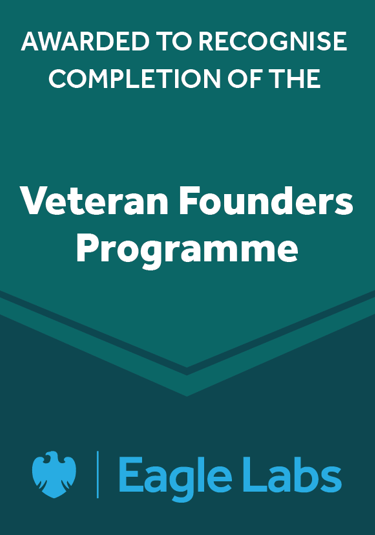
#10: The Future of Coaching: Why It Is Becoming Essential for Every Leader
Jamie Lennon
6 min read
Leadership is changing. The pace of work has intensified. Complexity has become constant. Expectations continue to rise. Modern organisations need leaders who can think clearly, communicate effectively, navigate pressure with composure and make decisions with confidence even when information is incomplete.
This environment has reshaped what leadership development must look like. Traditional training, occasional courses and one off workshops no longer meet the demands leaders face daily. The skills required of leaders are no longer technical. They are behavioural, emotional and relational. They revolve around clarity, presence, regulation, influence and adaptability.
This is why coaching has moved from a niche development tool to a fundamental requirement for modern leadership. And it is why the future of leadership development will centre on coaching more than any other method.
The question is no longer whether coaching is valuable. The question is whether organisations can afford not to offer it.
This article explores how leadership is evolving, what coaching will look like in the future and why every leader will need it in some form.
Leadership Is Becoming More Human and More Demanding
In the past, leadership often relied on experience, authority and expertise. Leaders made decisions based on their knowledge and directed teams through clear structures and predictable patterns of work.
Those conditions no longer exist.
Modern leaders face:
Rapid and unpredictable change
High workload and cognitive load
Competing priorities that shift weekly
A constant need for communication
Increasing emotional demands from teams
Greater diversity of perspectives and expectations
Complex organisational structures
Less time and space to think strategically
These pressures create emotional strain, cognitive fatigue and decision overload. Leaders who cannot self-regulate, adapt or simplify complexity quickly become overwhelmed.
The future of leadership requires emotional intelligence, strategic clarity and sustained resilience. These qualities cannot be taught through instruction. They must be developed through reflection, insight and behavioural change.
Coaching is the only development method that supports this level of growth.
Why Traditional Development Cannot Meet Future Demand
Most traditional leadership development methods focus on knowledge transfer. They teach information, models or frameworks. They are useful for broad understanding, but they do not change behaviour.
The challenges leaders face require something deeper.
Training cannot teach composure under pressure.
A workshop cannot build emotional intelligence.
A seminar cannot change how a leader interprets conflict.
A one off learning event cannot create lasting confidence.
A handbook cannot reshape identity or belief patterns.
These qualities are built through repetition, reflection, challenge and real time exploration. Coaching provides this. It meets leaders where they are and helps them evolve gradually and sustainably.
As organisational environments become more complex, traditional development will continue to lose relevance. Coaching will continue to rise.
The Future of Coaching Is Behavioural, Not Motivational
Coaching has matured significantly. It is no longer about motivation or encouragement. The future of coaching is rooted in behavioural science, emotional regulation, neuropsychology and identity level change.
Future coaching will focus on:
Understanding triggers and emotional patterns
Building patterns of calm decision making
Developing confidence grounded in clarity, not bravado
Strengthening leadership presence
Enhancing communication under pressure
Improving relational intelligence
Navigating conflict constructively
Increasing self-awareness at a deeper level
Challenging limiting beliefs and behaviours
Strengthening leadership identity
Coaching will evolve from goal setting conversations into sophisticated behavioural support. Leaders will rely on coaches not just to achieve objectives, but to maintain a healthy mindset, regulate emotional load and enhance relational impact.
This depth of support is already emerging and will become the norm.
The Future Leader Will Need Advanced Emotional Skill
Modern leadership demands emotional sophistication. Leaders must interpret nuance, manage tension, navigate interpersonal dynamics and handle stress without passing it onto others.
Emotional skill separates leaders who create stability from those who create turbulence.
The future will reward leaders who can:
Stay calm when the environment is chaotic
Communicate with clarity during uncertainty
Read the room effectively
Respond rather than react
Hold boundaries with professionalism
Maintain authority without intimidation
Express confidence without arrogance
Support others without burning out
Build trust quickly in complex environments
These capacities cannot be developed by reading, listening or observing alone. They must be practised, reflected upon and consciously strengthened. Coaching will become the primary route for this development.
Coaching Will Become Integrated Into Leadership, Not Added On
Historically, coaching was reserved for executives or senior leaders. Organisations treated it as an intervention for those at the top. That era is ending.
Future organisations will embed coaching throughout the leadership pipeline. Managers, aspiring leaders, clinical and operational leads, project managers and team supervisors will receive coaching as part of their development.
The reasons are clear:
Managers carry enormous emotional and operational load.
Middle leaders influence engagement, turnover and morale.
Emerging leaders need grounding early in their careers.
Teams perform better when their leaders are clear and confident.
Culture grows stronger when behaviour is intentional rather than reactive.
The future of coaching is inclusive. It will be used not as a last resort or elite benefit, but as a baseline expectation of professional development.
Technology Will Support Coaching, Not Replace It
Digital coaching tools are becoming more common. Micro learning, conversational AI, reflective prompts and behavioural apps will all play supporting roles. They will provide reminders, frameworks, diagnostics and situational guidance.
But they will not replace human coaching.
Leadership requires nuance, empathy, challenge, interpretation and psychological depth. These qualities cannot be replicated through generic digital tools.
Technology will enhance coaching by:
Extending learning between sessions
Supporting reflection
Tracking patterns
Strengthening accountability
Providing immediate prompts or insights
But the relational part of coaching, where identity shifts and emotional development occurs, will remain deeply human.
The Future Leader Will Not Wait Until They Are Struggling
Historically, leaders sought coaching when overwhelmed, under pressure or struggling with confidence. This reactive approach meant coaching was often used to repair rather than develop.
In the future, leaders will view coaching as proactive.
They will use it to:
Build resilience before pressure intensifies
Prepare for career transitions
Strengthen identity ahead of new responsibilities
Develop clarity before stepping into complex projects
Maintain presence and emotional control
Avoid burnout rather than recover from it
Enhance communication and influence deliberately
Reflect strategically rather than reactively
Future leaders will not wait for challenges. They will prepare for them.
Coaching Will Become a Competitive Advantage in Recruitment and Retention
Organisations are already beginning to use coaching as a differentiator. High performing employees look for workplaces that invest in personal and professional growth. Coaching is becoming one of the most valued benefits.
Forward thinking organisations offer coaching because they understand:
It reduces turnover
It strengthens leadership pipelines
It stabilises culture
It improves performance
It increases engagement
It supports wellbeing
It reduces risk
It improves communication
It attracts better candidates
The future organisation will offer coaching not as a perk, but as a necessity.
The Future of Coaching Is Transformational, Not Transactional
Coaching is shifting from a performance tool to a transformational experience. Leaders will increasingly seek:
Insight rather than instruction
Clarity rather than motivation
Self-awareness rather than techniques
Identity development rather than quick fixes
Behavioural change rather than surface level improvements
This evolution will shape the next generation of leadership. Leaders will become more grounded, more human, more intentional and more capable of navigating complexity.
Transformation, not training, will define future leadership development.
The Leaders Who Benefit Most Will Be the Ones Who Start Early
The leaders who adapt most effectively to the future will be those who invest in coaching early and consistently. They will develop deeper self-awareness, better emotional intelligence, stronger communication and more resilient identities.
They will approach uncertainty with confidence.
They will handle pressure without escalation.
They will build trust more quickly.
They will make clearer decisions.
They will lead teams with stability and intention.
The earlier leaders access coaching, the easier it becomes to build these foundations.
Final Thoughts: Coaching Is Becoming the Central Pillar of Modern Leadership
Leadership development is undergoing a fundamental shift. The future will demand leaders who are emotionally intelligent, grounded, reflective and self-aware. Leaders who can think clearly under pressure. Leaders who can build trust quickly. Leaders who can bring stability into uncertainty.
These qualities are built through coaching, not training.
Coaching is not becoming popular. It is becoming essential.
The organisations that recognise this will build stronger cultures, more capable leaders and more resilient teams. The leaders who recognise this will develop the clarity, composure and confidence needed for the future.
Coaching is not a trend. It is the future of leadership.




READY TO TALK?
If you're ready to discuss your training compliance or business consultancy needs, or you simply want to understand our services more, click the button below to schedule a FREE 30 minute call, and allow us to answer all your questions and provide insights into the best course of action for your business.
© 2026 1664 Training Solutions Ltd. | Privacy Policy
Website designed by Mpowering Solutions


1664 TRAINING SOLUTIONS LTD.
Our Services:


